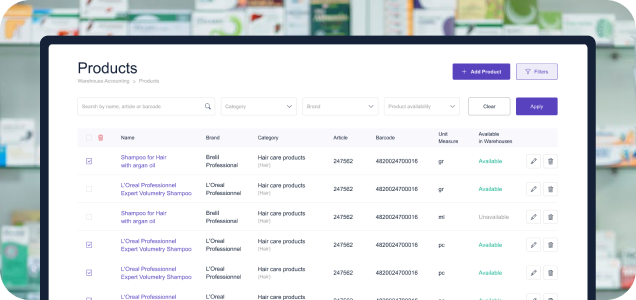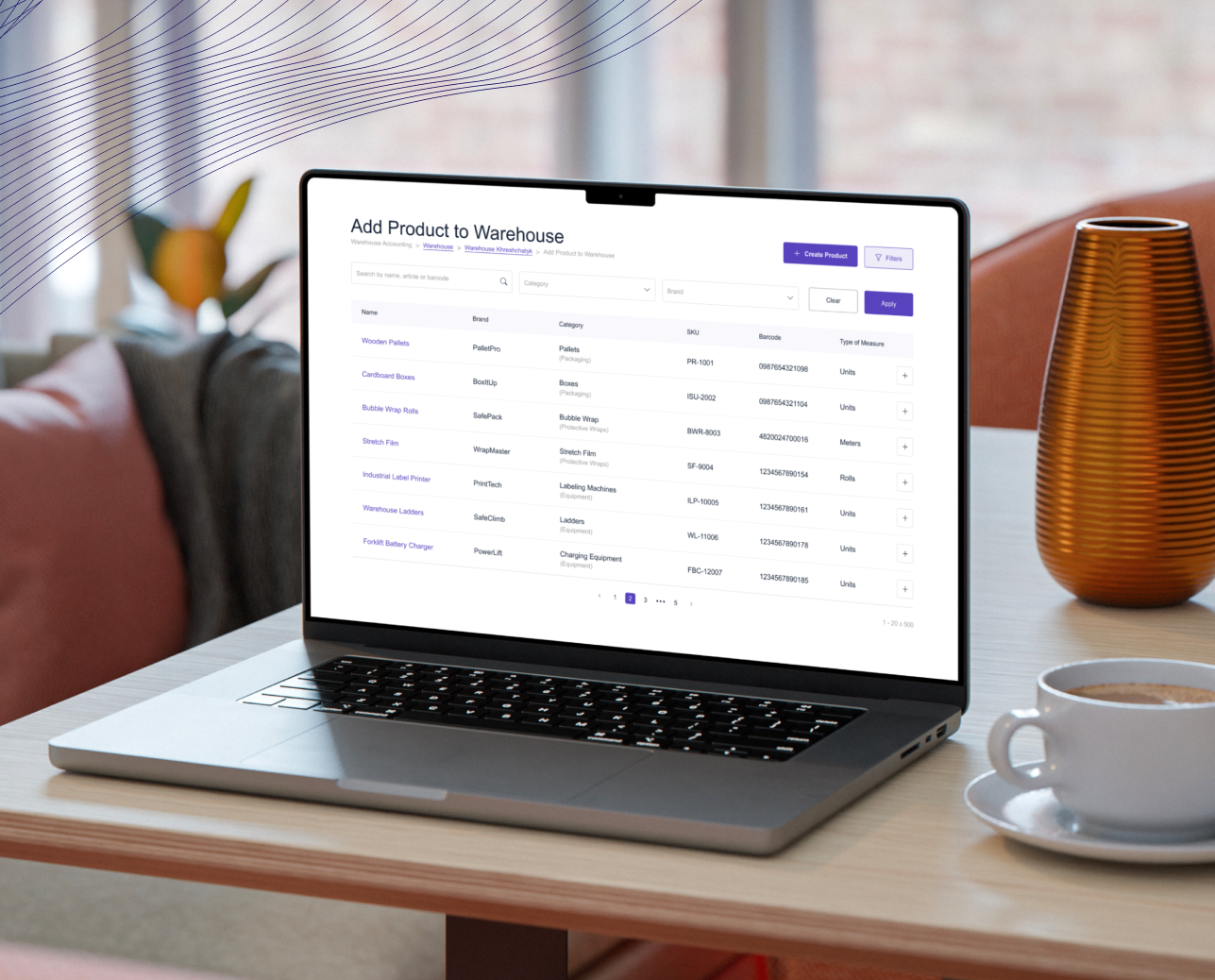Your Ultimate Guide on How to Open a Pharmacy Business
Starting a pharmacy business can be a rewarding and profitable venture if approached correctly. Pharmacies play a crucial role in communities by providing essential medications, health advice, and products. However, opening a pharmacy requires careful planning, a solid understanding of the industry, and a strategic approach to operations.

In this guide, we’ll cover everything you need to know about opening a pharmacy business, from creating a business plan to selecting tools like ME-POS, which can streamline your day-to-day operations. Whether you’re setting up a physical pharmacy, launching an online service, or expanding into specialty care, this guide will help you make informed decisions to ensure your pharmacy’s success.
Understanding Pharmacy as a Business
Opening a pharmacy is about much more than just stocking shelves with medications. You are stepping into a role that blends healthcare with retail, meaning you need to navigate the intricacies of both worlds. The nature of pharmacy as a business comes with its own set of challenges and opportunities that every prospective owner must understand.

The Nature of Business of a Pharmacy
Pharmacies operate at the intersection of healthcare and business. You’ll need to handle a wide range of responsibilities, from ensuring that medications are dispensed accurately to managing customer service and optimizing financial performance. The key to thriving in this space is balance – delivering essential healthcare services while maintaining the profitability of a retail enterprise.
Successful pharmacies focus on personalized customer service. Patients often come to the pharmacy for more than just medications; they seek expert advice, guidance on over-the-counter products, and recommendations on health supplements. Being available for consultations and building trust with your customers are important ways to cultivate loyalty and drive repeat business.
At the same time, a pharmacy must maintain compliance with various regulations and handle the logistics of managing an extensive inventory. You’ll need to keep a close eye on stock levels to avoid shortages of critical medications, while also ensuring that perishable drugs are stored correctly. This level of operational efficiency often relies on smart inventory systems, which is where a powerful pharmacy POS system can help.

Types of Pharmacy Businesses
There are several different models of pharmacy businesses to consider, each with its own distinct operations and market dynamics. Retail pharmacies, the most common type, serve a broad range of needs within a community. These pharmacies focus on prescription medications and over-the-counter products, but many also provide expanded services like immunizations, health screenings, and consultations. Retail pharmacies thrive in areas with high foot traffic and close proximity to healthcare providers.
Specialty pharmacies, on the other hand, offer a more niche service. These pharmacies manage medications for chronic or rare diseases, which require special handling, storage, and administration. Specialty pharmacies also typically offer a more personalized level of care, helping patients manage complex medication regimens. While this type of pharmacy is more specialized, it can be highly profitable due to the cost of the medications and the higher level of care provided.
Online pharmacies have seen significant growth in recent years. As consumers increasingly prefer the convenience of having their medications delivered to their homes, online pharmacies have become a popular alternative to traditional brick-and-mortar stores. However, running an online pharmacy requires strict adherence to regulations concerning the sale of prescription medications, as well as a robust system for managing online orders and deliveries.
Each of these pharmacy models has its own benefits and challenges. Understanding the differences will help you choose the right path for your business based on your goals and the market demand in your area.
Developing a Business Plan for a Pharmacy
Creating a solid business plan is critical to the long-term success of your pharmacy. This plan will serve as the roadmap for your business, helping you outline goals, anticipate challenges, and determine financial strategies. A well-thought-out business plan not only clarifies your vision but also helps secure funding and provides a framework for future decision-making.

Pharmacy Business Ideas
When developing your business plan, consider the type of pharmacy you want to open. Traditional retail pharmacies are common, but they aren't your only option. You could specialize in more niche areas of the market. For instance, a compounding pharmacy allows you to create custom medications for patients with specific needs, such as those with allergies to certain drug ingredients or those requiring unique dosages. This kind of pharmacy can provide an invaluable service to a smaller, specialized market.
Another business idea is to focus on providing a pharmacy delivery service. This type of business caters to customers who prefer the convenience of having their medications delivered right to their door. A delivery service could set your pharmacy apart from competitors and increase customer satisfaction, especially for elderly patients or those with mobility issues.
Both business ideas have the potential to fill unique market gaps. Choosing the right one for your area and skillset will depend on your research and understanding of your local community’s needs.

Specialty Pharmacy Business Model
The specialty pharmacy business model is built around providing high-cost and complex medications for chronic conditions such as cancer, multiple sclerosis, and HIV. These medications often require careful handling, patient education, and long-term management. Unlike retail pharmacies, specialty pharmacies often focus on long-term care for their patients, providing additional services like medication counseling, insurance assistance, and adherence programs.
One challenge with this model is that many specialty medications are expensive, and pharmacies need to work closely with insurance companies to manage reimbursement. Building relationships with healthcare providers is also crucial, as many specialty medications require a prescription from a specialist.
Specialty pharmacies typically have a smaller patient base, but each patient may require extensive care and follow-up, making customer service a priority. This model often relies on having a knowledgeable team that can provide both medical and financial guidance to patients.
By focusing on long-term patient care and niche services, specialty pharmacies can build strong customer loyalty and carve out a profitable place in the healthcare industry.

Retail Pharmacy Business Opportunities
Retail pharmacies are perhaps the most versatile, offering a wide range of services that cater to the general population. Aside from filling prescriptions, retail pharmacies often expand their services to include vaccinations, health screenings, and consultations. These additional services not only provide extra revenue streams but also increase foot traffic and customer loyalty.
One major opportunity for retail pharmacies is the growing trend of offering wellness products. Many pharmacies now stock supplements, vitamins, and health foods to meet the demands of health-conscious customers. This can create additional revenue opportunities and differentiate your business from others.
To maximize these opportunities, you’ll need to ensure your pharmacy is optimized for both efficiency and customer satisfaction. A pharmacy POS system like ME-POS can simplify the management of services, inventory, and customer interactions, allowing you to focus on delivering exceptional care.
By offering expanded services and focusing on customer needs, retail pharmacies can attract a diverse customer base and build a strong business foundation.
Opening a Pharmacy Business: Step-by-Step Guide
Opening a pharmacy is an exciting but complex endeavor that requires careful planning and execution. From securing licenses to setting up your store, each step plays a crucial role in the success of your pharmacy.

Opening a Pharmacy Checklist
There are several key steps you need to complete before opening your pharmacy doors.
-
Develop a Business Plan: Clarify your vision and outline your financial projections, staffing needs, and marketing strategies.
-
Register Your Business: Ensure your pharmacy is legally registered with local and national authorities. Obtain Required Licenses: You'll need a business license, a pharmacy license, and possibly a DEA license to sell controlled substances.
-
Choose a Location: Select a spot that is accessible to your target market, whether it be a high-traffic urban area or an underserved rural community.
-
Stock Your Pharmacy: Order medications, over-the-counter products, and other health-related items.
-
Hire Licensed Pharmacists: Ensure you have a team of qualified professionals to run the pharmacy.
-
Install a Pharmacy POS System: Implementing a reliable POS system, such as ME-POS, will help you efficiently manage inventory, track sales, and streamline transactions.
Each step is essential to ensure that your pharmacy is fully operational and compliant with local laws. Skipping any of these steps could lead to delays or legal complications, so it’s important to be thorough during the setup process.

Requirements for Opening a Pharmacy
Opening a pharmacy comes with a set of legal and regulatory requirements. First and foremost, you will need a pharmacy license issued by your state or national pharmacy board. This license ensures that you meet the necessary standards for operating a pharmacy, including staffing qualified pharmacists and following strict guidelines for the handling and storage of medications.
In addition to your pharmacy license, you may also need a DEA registration to sell controlled substances. Controlled substances are heavily regulated, and failure to comply with regulations can result in hefty fines or even the loss of your pharmacy license. Be sure to understand the legal obligations that come with dispensing these medications.
Health and safety regulations also play a key role in running a pharmacy. Medications that require refrigeration must be stored at specific temperatures, and the pharmacy itself must maintain a clean and secure environment. Failure to meet these requirements can result in penalties or suspension of your license.
Meeting all the legal and regulatory requirements is critical to the long-term success of your pharmacy. Staying compliant ensures that your business can operate smoothly and without legal interruptions.

How to Set Up a Pharmacy Business
The physical layout of your pharmacy is just as important as the medications you stock. A well-designed store should have a logical flow that makes it easy for customers to find what they need while also allowing pharmacists to work efficiently behind the counter. Placing the prescription counter at the back encourages customers to browse the front of the store, increasing the likelihood of additional purchases.
Beyond layout, technology plays a significant role in running an efficient pharmacy. A pharmacy POS system can help you manage your inventory, track prescriptions, and process transactions. Systems like ME-POS are designed to handle the specific needs of pharmacies, from managing high-demand medications to tracking controlled substances and managing customer data.
By setting up your store with efficiency and customer convenience in mind, you’ll create a positive shopping experience that keeps customers coming back.
Types of Pharmacy Ownership Models
The pharmacy industry offers several different ownership models, each with its own advantages and challenges. Deciding which ownership model best fits your goals will impact how you run your pharmacy and the services you provide.

Private-Owned and Independently-Owned Pharmacies
The private-owned pharmacy gives you complete control over operations. This level of autonomy allows you to tailor your pharmacy's services to meet the unique needs of your community. Independent pharmacies often have the flexibility to offer personalized services that chain pharmacies may not, such as custom medication packaging, after-hours consultations, and medication delivery.
The independently owned pharmacy can also establish deep relationships with customers, building loyalty through personalized care. However, independent owners must be prepared for the challenges of running a small business, including managing finances, staffing, and competition with larger chain pharmacies.
Operating a private-owned pharmacy allows for greater flexibility but also requires the owner to wear many hats, managing both the healthcare and business aspects of the operation.

Physician-Owned Pharmacies
Physician-owned pharmacies operate in conjunction with a medical practice, offering patients the convenience of getting their medications immediately after their appointments. These pharmacies are often located within or near medical offices and cater to a specific patient population.
While this model offers significant convenience to patients, it requires strict compliance with regulations to avoid conflicts of interest. Physicians must ensure transparency when prescribing medications and avoid the appearance of pushing certain drugs for financial gain. Proper documentation and compliance with healthcare laws are essential to running a successful physician-owned pharmacy.
Physician-owned pharmacies benefit from proximity to healthcare services but face stricter regulatory oversight to maintain transparency and ethics.

Opening a Compounding Pharmacy
A compounding pharmacy creates custom medications for patients who need specialized treatments. These pharmacies often cater to patients who require medications in specific dosages, unique formulations, or alternative delivery methods that are not available commercially. Compounding pharmacies also offer medications for patients with allergies to common drug ingredients, providing a vital service that can improve patient outcomes.
Running a compounding pharmacy requires specialized training, equipment, and facilities. Pharmacists must be certified in compounding techniques, and the pharmacy must meet strict regulatory guidelines for cleanliness and safety. Because of the complexity involved in creating custom medications, compounding pharmacies can charge a premium for their services, making them a potentially lucrative business model.
A compounding pharmacy can be an excellent choice for pharmacists who enjoy working closely with patients and customizing treatments to improve patient care.
Starting an Online Pharmacy or Pharmacy Delivery Startup
The rise of e-commerce has opened up new opportunities for pharmacies, particularly for those interested in starting an online business. Online pharmacies and delivery services provide patients with the convenience of ordering medications from the comfort of their homes, making this a rapidly growing sector of the industry.

How to Start an Online Pharmacy
Starting an online pharmacy requires a unique set of challenges compared to a traditional brick-and-mortar store. In addition to obtaining the necessary pharmacy licenses, you’ll need to ensure that your website meets all regulatory requirements for the sale of prescription medications. This includes having secure payment systems and complying with privacy laws to protect sensitive patient information.
One of the biggest challenges of running an online pharmacy is logistics. You’ll need a reliable system to manage orders, track inventory, and ensure timely delivery to customers. An integrated POS system designed for pharmacies can help manage these complexities, ensuring that orders are processed efficiently and that customers receive their medications promptly.
With the right system in place, online pharmacies can offer unparalleled convenience and accessibility, providing patients with an easy and efficient way to fill their prescriptions.

Pharmacy Delivery Startup
For those not ready to dive fully into e-commerce, starting a pharmacy delivery service is another option. Many customers prefer the convenience of having their medications delivered directly to their door, especially those who are elderly or have mobility issues. A delivery service can also attract customers who prefer not to wait in line at a physical pharmacy or who require recurring prescriptions.
Setting up a delivery service requires an organized logistics system to track orders, schedule deliveries, and ensure medications reach customers safely. You’ll also need to consider the costs involved in delivery, including vehicles, fuel, and staffing.
By offering a delivery service, pharmacies can expand their customer base and provide a valuable service to those who may not have easy access to a physical location.
Legal and Financial Considerations for Opening a Pharmacy
Opening a pharmacy involves navigating a complex web of legal and financial regulations. From securing the right licenses to managing your finances, it’s essential to stay on top of these requirements to avoid costly mistakes.

What Licenses Do You Need to Open a Pharmacy?
To legally operate a pharmacy, you’ll need to obtain a pharmacy license from your local or national pharmacy board. This license ensures that your business complies with all regulations regarding the sale and handling of medications. Depending on your location, you may also need additional licenses, such as a controlled substances license if you plan to dispense certain medications.
Licensing isn’t just a one-time requirement; you’ll need to renew your pharmacy license regularly and ensure your business stays compliant with any new regulations. Regular inspections may be required to ensure that your pharmacy meets health and safety standards.
Staying up-to-date with licenses and regulations is crucial to maintaining your pharmacy’s good standing with regulatory authorities.

Cost of Opening a Pharmacy
Opening a pharmacy can be a significant financial investment. The startup costs include leasing or buying commercial space, purchasing inventory, setting up the physical store, and marketing your services to the local community. You’ll also need to budget for salaries, insurance, and legal fees.
Ongoing costs include inventory management, employee wages, and technology systems. A well-designed pharmacy POS system can help you track sales, manage expenses, and monitor your business's overall financial health. These systems also help streamline operations, making it easier to identify cost-saving opportunities.
By keeping a close eye on your finances and investing in the right tools, you can ensure your pharmacy remains financially healthy.

Can a Pharmacy Open Without a Pharmacist Present?
In most jurisdictions, pharmacies cannot legally operate without a licensed pharmacist on-site. Pharmacists play a crucial role in ensuring the safe dispensing of medications, counseling patients on their prescriptions, and overseeing pharmacy operations. Operating without a licensed pharmacist is not only illegal but can lead to serious consequences, including fines, license suspension, or even closure of the pharmacy.
Ensuring that your pharmacy has sufficient staffing levels, including licensed pharmacists, is key to maintaining smooth operations and ensuring compliance with regulations.
Choosing the Right Location for Your Pharmacy
Choosing the right location for your pharmacy is critical to its success. The right location will help attract your target customers, ensure a steady flow of foot traffic, and increase your pharmacy’s visibility.

Where to Open a Pharmacy?
When selecting a location, it’s important to consider the demographics of the area. Pharmacies located near healthcare facilities, such as clinics and hospitals, often benefit from a steady stream of customers. Similarly, pharmacies in high-traffic areas, like shopping centers or busy streets, may attract more walk-in customers.
Another factor to consider is the competition. Areas with fewer pharmacies may present more opportunities for growth, while saturated markets may be more challenging. However, even in competitive markets, providing exceptional service or unique offerings can help your pharmacy stand out.
Choosing a location that balances accessibility, foot traffic, and competition is key to driving business success.

Factors to Consider When Selecting a Pharmacy Location
Several factors should influence your decision when choosing a location for your pharmacy. Demographics are key; if you plan to serve an older population, for example, proximity to retirement communities or senior living centers may be beneficial. On the other hand, if your target audience includes busy professionals, a location near office buildings or public transportation may be ideal.
Accessibility is another critical factor. Ensure that your pharmacy is easy to reach, with ample parking and convenient public transport options. If customers struggle to access your pharmacy, they may turn to competitors, even if you offer superior services.
By carefully considering these factors, you can choose a location that supports your pharmacy’s long-term growth and customer satisfaction.

Best Places to Open a Pharmacy Based on Target Market
If your pharmacy targets specific populations, consider choosing a location tailored to their needs. For example, pharmacies near senior communities can offer services like medication management, home delivery, and consultations on chronic conditions. On the other hand, pharmacies located in urban centers may focus on fast service, wellness products, and walk-in consultations to cater to busy professionals.
Understanding the needs of your target market will help you choose the best location and tailor your services accordingly.
Profitability and Future of Pharmacy Business
The pharmacy industry offers significant opportunities for profitability, but success depends on a combination of smart operations, excellent customer service, and the ability to adapt to changing market conditions.

Is Owning a Pharmacy Profitable?
Owning a pharmacy can be highly profitable, but profitability depends on various factors. The volume of prescriptions filled is a key determinant of revenue. Pharmacies with higher prescription volumes tend to generate more income, especially if they fill recurring prescriptions for chronic conditions.
In addition to prescription medications, over-the-counter products, wellness items, and health services like vaccinations can boost revenue. Many successful pharmacies diversify their offerings to increase profitability. Efficient management, especially of inventory and staffing, is crucial for keeping operating costs low while maximizing income.
Focusing on customer retention and operational efficiency will help ensure long-term profitability for your pharmacy.

Pharmacy Business Opportunities in the Market
The healthcare landscape is constantly evolving, creating new opportunities for pharmacies. Telemedicine, for example, is becoming increasingly popular, with many healthcare providers offering remote consultations. Pharmacies that partner with telemedicine providers can offer convenient prescription services, allowing patients to fill prescriptions immediately after their virtual appointments.
Another growing opportunity is the rise of specialty medications. As more patients require complex, high-cost medications, pharmacies that can handle these drugs are well-positioned to meet this demand. Expanding into niche markets, such as providing compounding services or focusing on a particular population group, can also offer new growth avenues.
By staying ahead of industry trends and offering specialized services, pharmacies can remain competitive and seize emerging opportunities.

Conclusion
Opening a pharmacy is a complex but rewarding business venture. From understanding the intricacies of running a healthcare-focused business to choosing the right location and services, every decision you make impacts your pharmacy’s success. Selecting the right tools, such as a pharmacy POS system is essential for managing inventory, transactions, and customer relationships efficiently. By following this guide, you can create a strong foundation for a successful pharmacy that serves your community while achieving profitability.
View more
Related Articles
View more










































